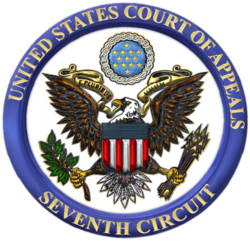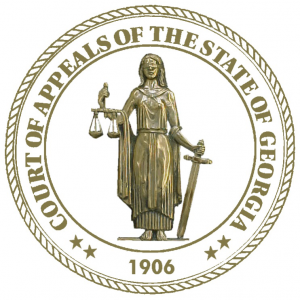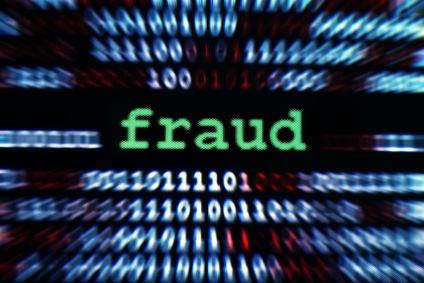The U.S. Court of Appeals for the Seventh Circuit recently reversed a district court’s denial of class certification in a putative class action alleging that a debt collector violated the federal Fair Debt Collection Practices Act (FDCPA) by sending supposedly misleading letters to Illinois residents trying to collect time-barred debts. A copy of the opinion in Scott McMahon v. LVNV Funding, LLC is available at: Link to Opinion. The plaintiff alleged that the defendant debt collector violated the FDCPA because it sent “dunning letters containing language that would mislead an unsophisticated consumer into believing that the debt is legally enforceable” even…
Section 75001 of the recently enacted Fixing America’s Surface Transportation (FAST) Act provides a new exception to the annual privacy notice requirement under the Gramm-Leach-Bliley Act (GLBA). The language of the provision is as follows: SEC. 75001. EXCEPTION TO ANNUAL PRIVACY NOTICE REQUIREMENT UNDER THE GRAMM-LEACH-BLILEY ACT. Section 503 of the Gramm-Leach-Bliley Act (15 U.S.C. 6803) is amended by adding at the end the following: (f) EXCEPTION TO ANNUAL NOTICE REQUIREMENT.—A financial institution that— (1) provides nonpublic personal information only in accordance with the provisions of subsection (b)(2) or (e) of section 502 or regulations prescribed under section 504(b), and…
The U.S. District Court for the District of New Jersey recently dismissed a debtor’s claims for violations of the federal Fair Debt Collection Practices Act (FDCPA) and the New Jersey Truth in Consumer Contract Warranty and Notice Act (TCCWNA), holding the debtor’s failure to schedule his lawsuit as an asset of his bankruptcy estate deprived him of standing to later assert the claims. A copy of the opinion in Lewis v. Portfolio Recovery Associates, LLC is available at: Link to Opinion. In March 2015, the debtor filed a lawsuit alleging the defendant sent him a letter in an attempt to collect a debt…
The U.S. Court of Appeals for the Second Circuit recently affirmed the dismissal of an action by the trustee of a residential mortgage-backed securities trust for breach of contractual obligations to repurchase mortgage loans that allegedly did not conform to representations and warranties, holding that: (1) the breach of contract claim was barred by the statute of limitations, which ran from the date the representations and warranties were made; (2) the so-called “extender provision” of the federal Housing and Economic Recovery Act did not apply to the trustee’s claim; and (3) the trustee’s claim for breach of the implied covenant…
Debt collectors seeking to avoid liability under the bona fide error exception of the federal Fair Debt Collection Practices Act (FDCPA) will not be excused from liability if the conduct at issue was intentionally undertaken. That is the ruling from the Seventh Circuit Court of Appeals in Leeb v. Nationwide Credit Corporation. Mark Leeb received a telephone call and letter from Nationwide seeking payment for an unpaid medical debt. Leeb wrote Nationwide stating he did not owe the debt because it was payable by his health insurance. He also requested Nationwide provide him verification of the debt under section 1692g(b) of…
The District Court of Appeals of the State of Florida, Fourth District, recently reversed final judgment of foreclosure in favor of a mortgagee for entry of judgment in favor of the mortgagors, where the mortgagee failed to prove that it came into possession of the note containing an undated, blank endorsement before the foreclosure was filed. In so ruling, the Fourth District confirmed that a trial court abuses its discretion in admitting business records if it is not established that the records were made at or near the time of the event. In addition, the Fourth District held that a…
The U.S. District Court for the Middle District of Florida recently denied a debt collector’s motion for sanctions based on the plaintiff’s filing of allegedly frivolous consumer protection claims, which the plaintiff consumer voluntarily dismissed with prejudice after demand from the debt collector’s counsel, where the debt collector failed to show the claims met the Eleventh Circuit’s two-prong test for frivolity. A copy of the opinion in Claudet v. First Federal Credit Control, Inc., is available here: Link to Opinion. After the plaintiff consumer underwent a medical procedure with a medical imaging company, she allegedly informed the medical imaging company…
The Appellate Division of the Fifteenth Judicial Circuit of the State of Florida recently reversed dismissal of a federal Fair Debt Collection Practices Act (FDCPA) claim alleging a debt collector’s letter falsely represented a bank was the creditor of a loan. In so ruling, the Appellate Division confirmed that even though a foreclosure action is not necessarily debt collection, the enforcement of a promissory note constitutes debt collection activity even if done in conjunction with the enforcement of a security interest, and even the debt collector stated it was seeking solely to foreclose the creditor’s lien on the real estate,…
The U.S. Court of Appeals for the Fifth Circuit recently affirmed summary judgment in favor of a loan owner and its loan servicer because the servicer gave the required 20-day notice of default under the Texas Property Code prior to initiating foreclosure, and the borrower failed to allege violations of the Texas Debt Collection Act (TDCA). A copy of the opinion in Diana Rucker v. Bank of America, N.A., et al is available at: Link to Opinion. The borrower obtained a $175,000 loan in 2005 in order to purchase her home, signing a note and deed of trust. The deed of…
The Court of Appeals of Georgia, Second Division, recently held that a debt collector did not violate the federal Fair Debt Collections Practices Act (FDCPA), holding that even if the alleged misrepresentations in the debt collector’s affidavit were technically false, they were not material and thus failed to state a claim. A copy of the opinion in Summer v. Security Credit Services LLC is available at: Link to Opinion. In August 2006, a national bank issued a credit card to the debtors, who defaulted by failing to pay the account. In April 2011, the issuing bank and a debt buying company…
The Maryland Court of Appeals recently affirmed a trial court’s grant of summary judgment in a putative class action “application fraud” case in favor of a mortgage company, bank, loan officers, realtors and a realty group and against the putative class of borrowers. In so ruling, the Court held: (1) the borrowers’ allegations were time barred; (2) the borrowers were put on inquiry notice and presumed to know the contents of the fraudulent loan applications they signed; (3) the lenders and realtors were not shown to have prevented the borrowers from reading the application documents; (4) the lenders had no…
In an Opinion Letter letter dated Nov. 2, the Massachusetts Division of Banks declared that collection law firms in Massachusetts are required to obtain a debt collector license pursuant to Mass. Gen. Laws Ch. 92, § 24 et. seq. The Opinion Letter was in response to correspondence from a Massachusetts collection law firm inquiring whether the firm, self-described as “overwhelmingly concentrated in the area of consumer debt collection on behalf of its clients,” was required to be licensed. At issue was the applicability of the licensing exclusion for “attorneys-at-law collecting a debt on behalf of a client.” In its Opinion,…












